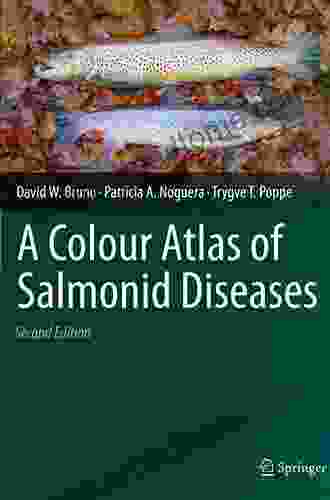Unveiling the Evolutionary Saga: Exploring Molecular Evolution through Statistical Approaches

Delving into the Statistical Toolkit
Molecular evolution has embraced a formidable arsenal of statistical tools, each meticulously crafted to unveil specific facets of evolutionary processes. From phylogenetic inference, which reconstructs the branching patterns of evolutionary lineages, to population genetics, which delves into the dynamics of genetic variation within populations, the statistical toolkit provides a comprehensive approach to understanding the intricate mechanisms of evolution.
Phylogenetic inference, a cornerstone of molecular evolutionary analysis, harnesses statistical models to decipher the evolutionary relationships among species. Techniques such as maximum parsimony, neighbor-joining, and Bayesian inference empower researchers to construct robust phylogenetic trees, revealing the branching patterns that connect life's diverse branches. These trees serve as invaluable frameworks for exploring the evolutionary history of species, uncovering patterns of diversification, adaptation, and extinction.
4.5 out of 5
| Language | : | English |
| File size | : | 31360 KB |
| Text-to-Speech | : | Enabled |
| Screen Reader | : | Supported |
| Enhanced typesetting | : | Enabled |
| Word Wise | : | Enabled |
| Print length | : | 507 pages |
| Lending | : | Enabled |
Complementing phylogenetic inference, population genetics offers a nuanced lens into the genetic makeup of populations. By analyzing the distribution and frequency of genetic variants, population geneticists shed light on the forces that shape genetic diversity. Hardy-Weinberg equilibrium, a fundamental principle in population genetics, provides a baseline for understanding the interplay between genetic drift, mutation, migration, and selection. Deviations from this equilibrium can signal the presence of evolutionary forces at play, offering insights into the dynamics of adaptation and speciation.
Unveiling the Mechanisms of Molecular Evolution
The statistical tools at our disposal have illuminated the intricate mechanisms that drive molecular evolution. Natural selection, the driving force behind adaptation, leaves its indelible mark on the genetic code. Statistical methods, such as codon-based models and likelihood ratio tests, enable researchers to detect the subtle signatures of selection, revealing the genetic adaptations that have shaped species' fitness and survival.
Mutation, the engine of genetic variation, introduces novel genetic material into populations. Statistical approaches, including coalescent theory and site-frequency spectrum analysis, provide insights into the rates and patterns of mutation, helping us understand the raw material upon which selection acts. These methods allow researchers to glimpse into the evolutionary clock, uncovering the temporal scale of genetic changes and the tempo of molecular evolution.
Genetic drift, the random fluctuation of genetic frequencies, plays a crucial role in shaping the genetic composition of populations, particularly in small populations. Statistical simulations and analytical approaches, such as Wright-Fisher models, enable researchers to quantify the effects of genetic drift and assess its impact on genetic diversity and evolutionary outcomes.
Exploring the Evolutionary Landscape
Armed with statistical tools, molecular evolutionists have embarked on a comprehensive exploration of the evolutionary landscape. From deciphering the genetic basis of complex traits to unraveling the evolutionary history of pathogens, molecular evolution provides a powerful lens into the intricate tapestry of life's origins and progression.
In the realm of medicine, molecular evolution has revolutionized our understanding of disease susceptibility and drug resistance. Statistical approaches have enabled researchers to identify genetic variants associated with specific diseases, unlocking avenues for personalized medicine and targeted therapies. Additionally, by studying the molecular evolution of pathogens, scientists can track the emergence and spread of infectious diseases, guiding public health interventions and vaccine development.
The field of ecology has also benefited immensely from the insights provided by molecular evolution. Statistical analyses of genetic data have illuminated the intricate relationships between species and their environments. Researchers have uncovered the genetic adaptations that allow species to thrive in specific habitats, shedding light on the processes of ecological speciation and adaptation.
"Molecular Evolution: A Statistical Approach" offers an immersive journey into the captivating world of molecular evolution, where statistical tools serve as illuminating beacons, guiding us through the complexities of life's genetic heritage. By harnessing the power of statistical analysis, researchers have unlocked the secrets hidden within our genetic code, revealing the intricate mechanisms that have shaped the diversity of life on Earth. From the depths of phylogenetic inference to the dynamics of population genetics, molecular evolution empowers us to decipher the evolutionary saga, unraveling the enigmatic tapestry of our origins and progression. As the field continues to advance, the statistical toolkit will undoubtedly play an ever-expanding role, propelling us towards a deeper understanding of the intricate dance of life.
4.5 out of 5
| Language | : | English |
| File size | : | 31360 KB |
| Text-to-Speech | : | Enabled |
| Screen Reader | : | Supported |
| Enhanced typesetting | : | Enabled |
| Word Wise | : | Enabled |
| Print length | : | 507 pages |
| Lending | : | Enabled |
Do you want to contribute by writing guest posts on this blog?
Please contact us and send us a resume of previous articles that you have written.
 Book
Book Novel
Novel Page
Page Chapter
Chapter Text
Text Story
Story Genre
Genre Reader
Reader Library
Library Paperback
Paperback E-book
E-book Magazine
Magazine Newspaper
Newspaper Paragraph
Paragraph Sentence
Sentence Bookmark
Bookmark Shelf
Shelf Glossary
Glossary Bibliography
Bibliography Foreword
Foreword Preface
Preface Synopsis
Synopsis Annotation
Annotation Footnote
Footnote Manuscript
Manuscript Scroll
Scroll Codex
Codex Tome
Tome Bestseller
Bestseller Classics
Classics Library card
Library card Narrative
Narrative Biography
Biography Autobiography
Autobiography Memoir
Memoir Reference
Reference Encyclopedia
Encyclopedia Patrik Schumacher
Patrik Schumacher Stephen M Kosslyn
Stephen M Kosslyn Joy Ghosh
Joy Ghosh Patricia A Deuster
Patricia A Deuster Penny Starns
Penny Starns Zhongwei Huang
Zhongwei Huang Philip Katcher
Philip Katcher Paddy Chayefsky
Paddy Chayefsky Rosalie Lombardo
Rosalie Lombardo Tracy Timm
Tracy Timm Richard L Hermann
Richard L Hermann R David G Pyne
R David G Pyne Peter A Henning
Peter A Henning R Ogilvie Crombie
R Ogilvie Crombie Venki Ramakrishnan
Venki Ramakrishnan Thomas Anthony
Thomas Anthony Paul Morrison
Paul Morrison Philip Leigh
Philip Leigh Stephen Griffin
Stephen Griffin Rachel Koshi
Rachel Koshi
Light bulbAdvertise smarter! Our strategic ad space ensures maximum exposure. Reserve your spot today!
 Leo MitchellFollow ·9.7k
Leo MitchellFollow ·9.7k Vladimir NabokovFollow ·2k
Vladimir NabokovFollow ·2k Todd TurnerFollow ·8.7k
Todd TurnerFollow ·8.7k Daniel KnightFollow ·4.6k
Daniel KnightFollow ·4.6k Randy HayesFollow ·17.2k
Randy HayesFollow ·17.2k Philip BellFollow ·15.5k
Philip BellFollow ·15.5k Greg FosterFollow ·15.7k
Greg FosterFollow ·15.7k Adam HayesFollow ·9.8k
Adam HayesFollow ·9.8k

 W. Somerset Maugham
W. Somerset MaughamNourishing Delights: Easy Recipes Without Salt, Oil, or...
Are you looking for...

 Zachary Cox
Zachary CoxThe Art of Kitchen Fitting: A Masterful Guide to Culinary...
The kitchen, the heart of...

 Elliott Carter
Elliott CarterArticulating the Spirit of Black Women Teacher Leaders:...
In the tapestry of education,...

 James Gray
James GrayThe Complete Guide to Arduino: Your Journey to...
: Unveiling the...
4.5 out of 5
| Language | : | English |
| File size | : | 31360 KB |
| Text-to-Speech | : | Enabled |
| Screen Reader | : | Supported |
| Enhanced typesetting | : | Enabled |
| Word Wise | : | Enabled |
| Print length | : | 507 pages |
| Lending | : | Enabled |
















